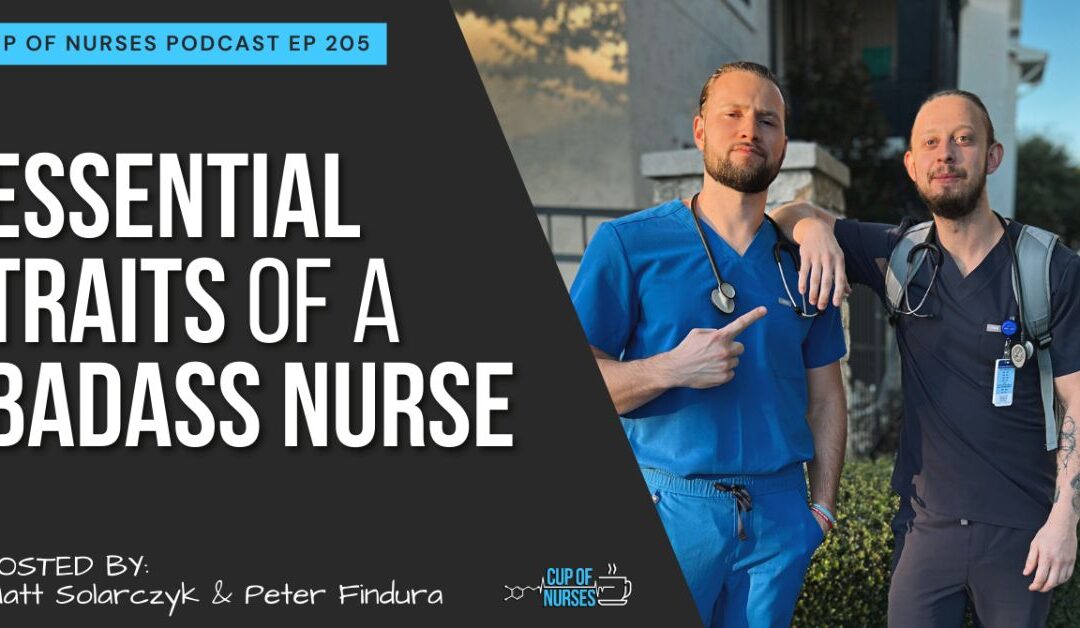
EP 211: MICU and Becoming a CRNA with Jenny Finnell
EP 211: MICU and Becoming a CRNA with Jenny Finnell
Becoming a CRNA is possible for any nurse. It may take time and a lot of dedication, but you can become one too. In this episode, we would like to introduce you to Jenny Finnell. Jenny is a CRNA with experience in MICU, adult open heart, and pediatrics.
She spends most of her time mentoring and looking for ways to build community and resources for our nurses.
Jenny launched Nurses Teach Nurses in August 2022, a mentorship marketplace for nurses by nurses. She helps nurses by empowering them to share knowledge, promote personal growth and create a culture of support.
She is also the creator of CRNA School Prep Academy, which helps people get into CRNA school and succeed on the job.
We talk about the life of a CRNA and what it takes to become one and overcome self-doubt in school and on the field.
Questions for Our Guest
The questions below are some we’d like to tackle. We often go off-topic, so we don’t expect to hit them all. If you have any ideas, please let us know.
Looking forward to our conversation!
These are the questions you had in Calendly. We’ll go off your questions and wherever else our conversation goes.
- Can you give some background about yourself, your nursing experience, and how you decided to become a CRNA?
- Why did you choose to jump into the MICU?
-
- How was your experience in the MICU?
- Any interesting cases? Common things you dealt with?
- What were the expectations and some things you struggled with?
- We often hear the phrase that nurses eat their young. Did you feel that way? Is this a good way to teach new nurses?
-
- What are the requirements for becoming a CRNA?
-
- What experience is needed?
- How is CRNA school?
- CRNA school vs Nursing school?
- Is there a certain “person” that gravitates to becoming a CRNA?
- Advice for future CRNAs?
- With NP school, there isn’t a requirement to work as an RN. Do you think you really need that ICU experience to be successful as a CRNA?
-
- You’ve been married to your high school sweetheart. How important is having support?
-
- Did you always get the support you needed?
- Work-life balance?
-
- What made you start CRNA School Prep Academy?
-
- Did you have a mentor in CRNA school?
- What can you expect to get and learn at the CRNA School Prep Academy?
-
- What made you start Nurses Teach Nurses?
-
- How important is positive nursing culture?
-
Ending Questions
Before we end the show, we have one last question we like to ask all our guests. If you had the opportunity to have a Cup of coffee with anybody one last time, who would it be & why?
Links:
https://nursesteachnurses.com/#
https://www.instagram.com/crnaschoolprepacademy/
https://nursesteachnurses.com/#
https://www.instagram.com/nursesteachnurses/
https://www.cspaedu.com/steps
Here’s her journey from MICU and becoming a CRNA. Watch the full episode here 👇👇
TIMESTAMPS:
00:00 Introduction
01:58 About Jenny Finnell
03:13 The Incredible Benefits of Pursuing a Career as a CRNA
04:54 What is the Environment of an Open Heart Surgery look like
08:19 The real responsibilities of CRNA’s
11:09 What does a life of a CRNA look like
13:29 Patient Care Differences Between Adults and Children
15:34 Tips to becoming a CRNA
17:05 How to Boost Your Confidence and Conquer Your Insecurities
23:21 Experiences That Paved the Way to Becoming a CRNA
25:50 Reasons Why Nurses Leave Bedside Care
30:39 The Benefits of Seeking Professional Help from Experienced Healthcare Professionals
34:22 Who are the Nurses teach nurses for
37:28 What is “CRNA School Prep Academy” all about
41:12 Things that need improvement in nursing
43:36 Wrapping up the show





Recent Comments